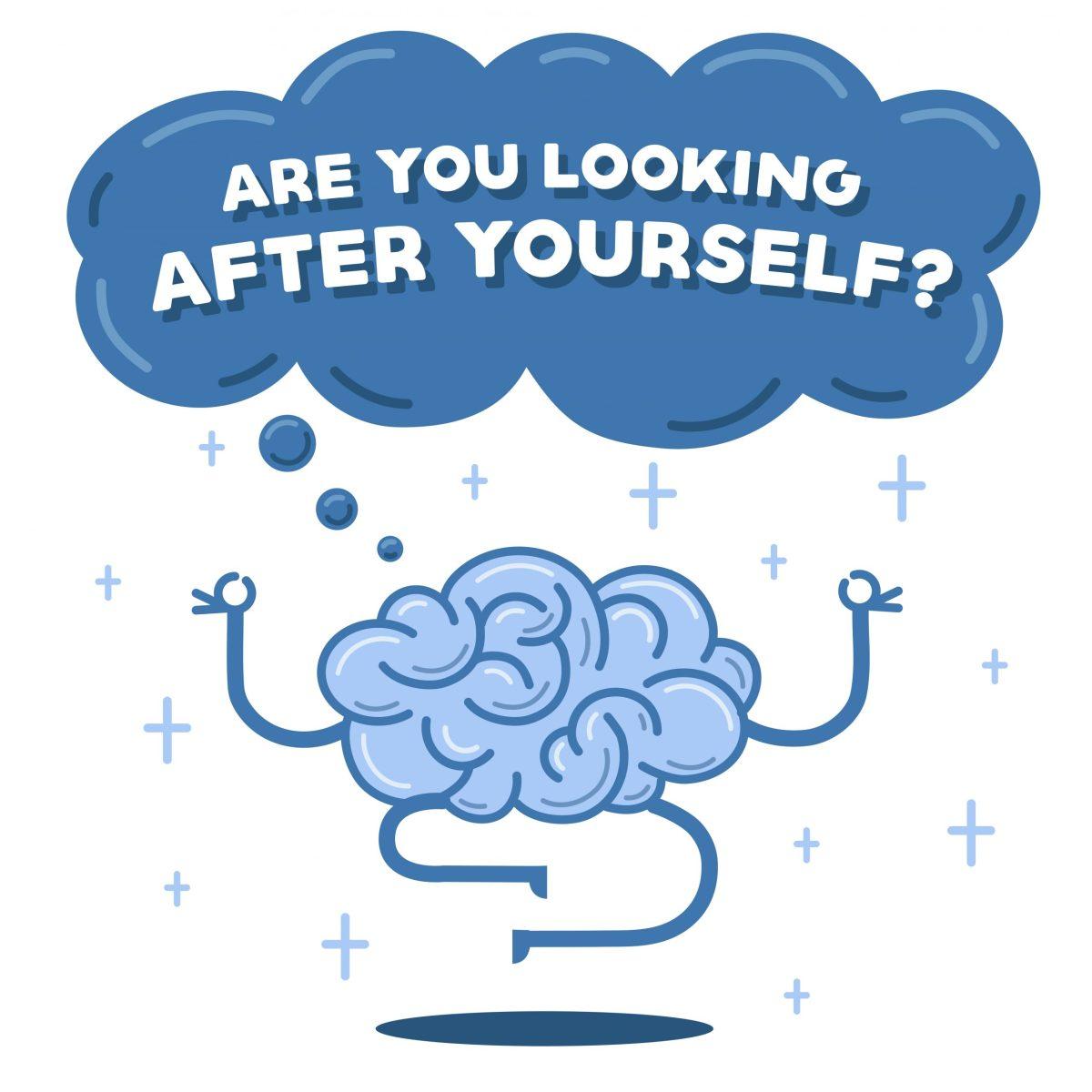
Graphic by Samantha Lopez | Mercury Staff
Advice from one student to another
Q: How do I get better at public speaking when feeling nervous and self-conscious? -Rahaf
Thanks for asking, Rahaf. As an introverted
and self-conscious person, I also struggle with public speaking and am
well-acquainted with your frustrations. However, this fear is nearly universal,
so experiencing any anxiousness or distress at the prospect of public speaking
is totally normal. While it may not be possible to completely rid yourself of
the nerves, minimizing them is doable, especially if you’re willing to
practice.
Repetition is key in improving public speaking
skills. Before you begin practicing, envision yourself giving your speech in a
casual, relaxed manner, almost as if you’re talking to a friend. Consider the
types of words and phrases you’d use in said scenario and try to incorporate
them, alongside some of your own humor, to your speech. Speaking in your own
voice might help bolster your confidence, but if you’re still unsure of where
to start, I highly recommend getting a virtual appointment with the Comm
Lab. I’ve used their resources for help
a couple of times in the past, and they provided wonderful feedback on how to
improve my outline, edit my presentation tools and actually perform my speech.
Another thing I like to remind myself before
giving a presentation is that my audience isn’t going to be as concentrated on
me as I think. While this may not be the case for every scenario, it certainly
applies to those in class, which is where you’ll probably be giving most of
your presentations as a student. If you’ve ever looked around the room while
someone else was presenting, you probably saw some of your peers on their
phones, others working on assignments and a few simply staring into space. So,
if you mispronounced a word or blanked out on what you were saying for a couple
of seconds, chances are nobody really noticed. And if they did, they probably didn’t
care about it as much as you did. Most people understand the pressure that
comes with public speaking, so they’re generally pretty forgiving of mistakes,
even the ones that we might view as abysmal. We tend to put a lot of undue
pressure on ourselves, so sometimes it helps to take a step back from the
situation and analyze it from a different perspective.
Q: How do I start overcoming social phobia? I’m at the Activity Center and Starbucks a lot but lack the confidence to get involved in real events/clubs. Thanks! -A31
I’m glad you asked this question, as shyness
is an issue I struggle with as well. Mustering up the courage to get involved
in social events can feel daunting — sometimes even impossible. However, we
tend to place a lot of unwarranted pressure on ourselves when it comes to
meeting new people. While it’s normal to fret over first impressions, getting
too caught up in your own anxious thoughts and feelings can just perpetuate
your anxiety. In these kinds of situations, I find it helpful to focus more on
the other person (but not on what they may think of you) instead of yourself.
Ruminating over whether the other person finds you annoying or weird is a form
of maladaptive thinking, as it can be harmful to implant such a negative
presumption in your mind without knowing things for certain. Also, when it
comes to making a good first impression, the other person is usually just as
nervous as you are. Think back to when you met your best friend. At one point,
you were strangers and probably had some sort of awkward first encounter, but
you developed a meaningful bond anyway. Taking a step back from a social
situation, thinking about what’s happening in real-time and only reflecting on
the things that were said might help you see some of the irrationality behind
anxious thoughts.
In terms of actually getting involved in
things, I’ve found that one of the best things you can do is start small. It
seems like you’re already comfortable being in public spaces, so perhaps trying
to talk to the person next to you in class would be a good start. Then, you
might be able to work towards something bigger, like starting a study group
with classmates. Sometimes trying to weave school into social activities can be
a great way to start meeting people when you haven’t developed the complete
confidence to do so in another setting. Another thing you could try is bringing
someone you feel safe with to club activities. That way, you might be able to
energize and encourage one another to talk to new people.
While social anxiety isn’t necessarily
curable, minimizing some of that fear is doable. If you’re still feeling
overwhelmed by all this or don’t know where to start, I highly recommend
working through a self-help manual, like “Overcoming Social Anxiety and
Shyness” by clinical psychologist Gillian Butler. Not only is it a good read,
but the book provides you with practical exercises to apply to your daily life.
These activities can also be supplemented
with visits to the Student Counseling Center if needed.